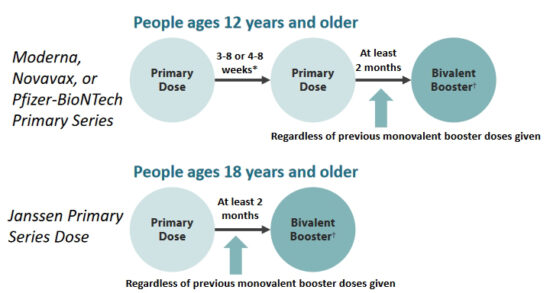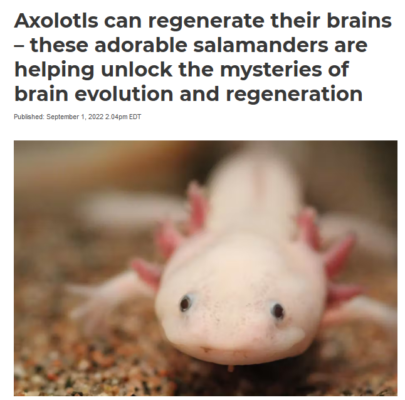Pot saves money, important booster info, mystery disease in Argentina, and more
03 Sep 2022
Posted by Andrew Kantor
Boosters: What you need to know
The CDC followed the FDA in approving Omicron-specific booster vaccines, meaning they’ll be delivered shortly.
As with everything else pandemic-related, there’s some confusion.
A big thank you to reader Brent Lake at Augusta University, who provided a link to a comprehensive and (yay!) easy-to-understand guide, straight from the CDC’s Advisory Committee on Immunization Practices.
The biggest takeaways:
- The original mRNA vaccines are no longer authorized as boosters.
- People must have had two shots of the original vaccines before getting a booster.
- You can mix and match — it’s okay to get either a Pfizer or Moderna booster no matter which shots you got originally.
- The Pfizer/BioNTech booster is approved for 12 and older; Moderna’s for 18 and up.
- If someone got a third or fourth “original” shot as a booster, they can also get one of the new boosters; i.e., “a bivalent should not be denied based on total number of doses.”
- There are different recommendations for immunocompromised people, and for people who had a severe adverse reaction to the original shot. Read the CDC’s presentation.
- It’s AOK to give a Covid vaccine or booster with other vaccinations, e.g., a flu shot.

Captain Obvious would like to weigh in, if she may
“Three Covid-19 vaccines may provide greater protection from Covid-19 infections than two”
—Public Library of Science
Paxlovid questions
Does taking Paxlovid cause a ‘rebound’ infection before curing Covid? Um … maybe? It still works, though, so there’s that.
Covid rebound has also been observed in people who have not taken Paxlovid, and some experts believe it might be a natural course of the infection to see symptoms ebb, then return.
Perspective: Winners or losers?
People are using marijuana instead of painkillers, antidepressants, sleep aids, antacids, and other drugs. Thus the paper’s title: “U.S. cannabis laws projected to cost generic and brand pharmaceutical firms billions.”
Or, put another way: “U.S. cannabis laws projected to save consumers billions.”
A step toward a Down syndrome treatment
A small human trial has found that increasing the production of a protein called gonadotropin-releasing hormone (GnRH) improves some brain function in people with Down syndrome.
Low levels of GnRH — you may recognize it as being used in fertility treatments — can cause infertility and loss of the sense of smell. French neuroendocrinologists, knowing both of those affected people with Down syndrome, experimented on mice. They and found that restoring GnRH production “reverse[d] the rodents’ smell and memory deficits.”
So, too, did giving them Lutrelef (a drug that can replace GnRH). They then tried it on seven men, and found that Lutrelef had a similar effect.
After 6 months, the men showed a 10% to 30% improvement on the Montreal Cognitive Assessment, a standard measure of intellectual disability. The test challenges spatial and verbal memory with tasks such as drawing a 3D cube or remembering a short string of words.
This isn’t a treatment or cure, of course, but a potential step toward improving the everyday life of people with Down syndrome.
Another red herring?
…or are the writers teasing a future season?
“Third person dies of mystery pneumonia in Argentina.”
Health officials have expressed their mounting concerns after tests for 30 infections including Covid, flu and influenza types A and B came back negative.
(Remember, Covid-19 was once a “mysterious respiratory illness.”)
Weird science for your long weekend
Salamander: “I can regenerate my limbs!”
Axolotl: “Is that all?”



